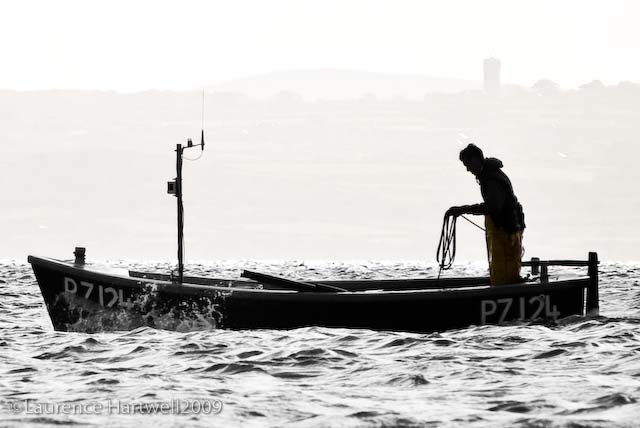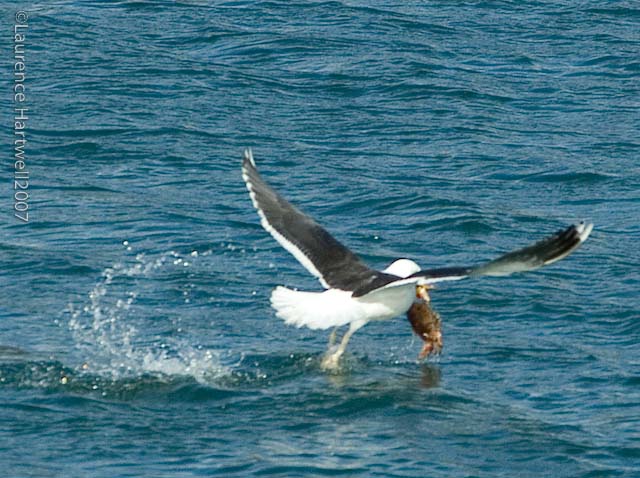Before you feel sorry for anybody in this story, meet Jared Bright. And remember your first impression, because he's eventully going to call himself a serf. For the moment, he's just a guy you're about to get jealous of. That's because he's 38 years old, and industry sources say he's worth about $2 million.
Between his ordinary upbringing inKetchikan, Alaska, and the day Bright invested in his fishing boat, there was no winning lottery ticket, no trust fund. He's just a fisherman; been one for 21 years. And lucky for him, he happens to be good at it. If he can keep the bearded men in the embroidered shirts out of his game, he's going to be even better.
But before we get into the bearded men, get rid of the image of the Gorton's fisherman. Forget the fish sticks, the wooden captain's wheel, and that wholesome picture of the guy on the yellow box. Instead, put yourself on one side of the Whole Foods fish counter, a chunk of halibut in the middle—price tag: $28 a pound—and think of Bright as the guy on the other side, the guy who's going to get it to you. Think six feet two inches of lean muscle, pierced ears, and an auburn mug and sideburns, dressed in black North Face and talking like 10 cups of coffee while texting on a smartphone.
This is your fisherman. You are as likely to see him driving around West Seattle in his Smart Car as out on the open ocean. And if you thought The Deadliest Catch was wild, the game he plays to bring you this latest item in white-tablecloth seafood is even weirder.
There's no captain's wheel in this industry. Hasn't been in a while, if there ever really was. The oddball universe that is halibut fishing, a fish that two decades ago cost $3.99 a pound and came in a hideous frozen brick, is more a game of floating Monopoly.
Guys like Jared Bright vie for control of the industry's lower rungs, the only rungs that seem to be left. Simply put, they're renters. They don't own the halibut, not even when it lands in their boats. The fish are instead the property of a generation of wealthy owners, most of whom did nothing more than fish in the right place at the right time to get a stake.
Their ownership rights came courtesy of the federal government. At the time, it was a good idea. In ways, it still is. But it's created what amounts to a feudal system over a natural resource.
It's a system, called catch shares, that the government and environmental groups will tell you is the best thing to happen to fish since catch limits. But fishermen in the halibut and black-cod industry—the first in the country to live with the bizarre realities of these new policies—have weathered its real consequences, outcomes that fly in the face of more official, rosy portrayals. Outcomes like absentee landlords, brokers and bankers, fish quota that costs more than your house, and a new generation of people cluttering their hulls, demanding sandwiches.
It's getting hard for young fishermen like Bright to stay in this game. Those who try, though, are bettering their odds with a few comfy amenities, bait for a different kind of big fish: owners. Big-screen TVs, staterooms, hot tubs, saunas, and a super-sweet DVD collection are all things that could potentially shift their odds.
Meet America's newest sharecroppers.
Halibut is a tough business. As fishing goes, it's child's play, but it makes the typical 40 hours of desk jockeying look like a spa retreat.
The rest of the story is available in the e-book above courtesy of:
InvestigateWest (invw.org) is a donor- supported investigative newsroom in Seattle.




